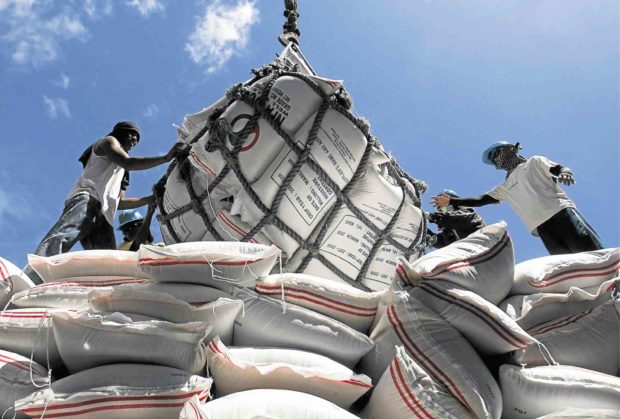Rice import suspension not seen easing farmers’ woes

Instead of suspending rice imports, the government can focus on safety nets for affected farmers and crackdown on price-fixing, hoarding, rampant smuggling and collusion among profiteering rice traders.
This was suggested by the Foundation for Economic Freedom (FEF), an organization advocating market-friendly reforms, good governance and economic and political liberty.
Concerned about local farmers, President Duterte had called for the suspension of rice imports but later changed his mind after discussing this issue with his economic managers.
A suspension of rice imports will not help rice farmers and consumers. Instead, this will only reward profiteering rice traders and rice hoarders, FEF said.
“We caution patience since it will take time to break the power of rice traders and middlemen in setting the farmgate prices of palay while holding off more significant price decreases to the consumers. In the meantime, the National Food Authority (NFA) can direct its buying support program to the most vulnerable farmers since NFA’s budget is limited,” FEF said in a statement.
The FEF also welcomed the Department of Agriculture’s acceleration of its program to provide targeted cash subsidies to affected rice farmers. It also urged the Department of Justice and the Philippine Competition Commission to step up their probe on price-fixing, hoarding, rampant smuggling and collusion among rice traders.
“The win-win solution is the improvement in farm productivity as increased productivity will result in lower prices to consumers but also increased incomes for rice farmers. Improved farm productivity, through better seed selection, farm mechanization, land consolidation and better farm practices, should be the end goal of the Rice Tariffication Law, and not just lower consumer prices,” the FEF said.
But the FEF said it understood Mr. Duterte’s concern about the impact of rice import liberalization on rice farmers.
The group also expressed support to Mr. Duterte’s stance that the Rice Tariffication Law must stay.
“However, suspending rice imports may not help rice farmers. The order to suspend rice imports may reward the rice traders and rice hoarders whose warehouses are full of rice. They will unload their rice stocks as soon as rice prices shoot up once rice importation is curbed. Suspending rice imports will do nothing to raise the farmgate rice prices,” FEF said.
“Suspending rice imports will also hurt 105 million Filipino rice consumers. It will raise the risk of renewed inflation and price increases.”
The surge in rice prices was one of the culprits behind the inflation scare in the country last year.
In the past few months, however, the FEF noted that rice liberalization had resulted in subdued inflation, which had even fallen below Bangko Sentral ng Pilipinas’ targeted range of 2 to 4 percent, which caused the local monetary authority to lower interest rates, benefitting consumer borrowers and businesses.
Lower food inflation has also benefitted the poor since most of their budget is spent on food, the group added.